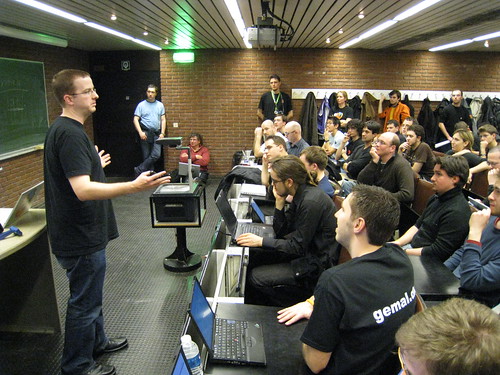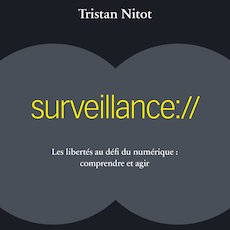
I'm a bit late blogging about this as we were having a developer meeting this weekend, but Mozillazine.org has the scoop: On February 23rd, 1998, Netscape announced Mozilla.org. Around a hundred Mozilla contributors gathered in Brussels to celebrate the event[1].
I vividly remember this period of my life. I remember trying to explain to journalists what Open Source (or Free Software) meant in terms of software development, what kind of impact it would have on the industry, and why Netscape, facing competition from Microsoft, would only be able to survive by changing the rules of the game. At the time, people could get the notion of "free as in beer" part, but really could not get the code-sharing and collaboration part. Things have changed since then (one could argue that in many cases, people still don't get it today, but we have to recognize that the industry has changed its approach in ways that are amazing).
10 years is a good time to step back and think about what Mozilla has done over time to improve the state of the Web and the state of Open Source.
In terms of the state of the Web, Mozilla, with Firefox, has made a huge contribution. Let's remember the situation of say, 2002. Security issues, pop-ups, malware attacks were commonplace back then, so many ordinary users gave up on the Web, because it was too unpleasant and risky for them. But the worst for me was that everybody was creating content for Internet Explorer 6, because it was the dominant browser (more than 90% market share, thanks to the very efficient but illegal Windows bundling that put IE on everyone's desktop). At the same time, Internet Explorer was not being developed anymore. The Web was being built on a dead browser! On top of this, because Microsoft was not innovating on the browser space at all, this was preventing a lot of innovation to happen on the Internet. I can safely say that all of us at Mozilla take Internet and the Web seriously. It's a wonderful promise to mankind, and I think it is similar in importance to the invention of the printing press. As Mitchell Baker recently told me, "Mozilla was built on hope", the hope that we can bring back innovation to the client side of the Web by providing a free and open-source easy to use browser.
Let's fast-forward to 2008. Firefox has achieved 500 million downloads[2], 28% of market share in Europe, and 150 million users (and counting), and version 3, our best and most promising release so far, is going to ship soon. Innovation is happening again for the end-user (think about our awesomebar, the site-security information, the site-specific preferences) and the Web developer (Off-line support, canvas, cross-site XMLHttpRequest, JavaScript 1.8, etc.) Millions of people now understand that what a browser is, why it's important to have choice, and have taken the time to install and use a better browser.
In terms of the state of Open-Source, things have improved a lot too. More people now understand what this means (a lot of work remains to be done, though), and what's more important is that Mozilla has proven that it's possible to harness the collective intelligence of thousands of volunteers around the world and build a very easy-to-use, extensible and secure product. Everywhere I go and talk about the way we are organized, people want me to do similar talks inside their company, which shows that we're ahead of the game in terms of Open-Source innovation and marketing.
And now, where is Mozilla going? One thing is sure: we at Mozilla want to be here for the long term, to make sure that Internet users keep having choice and enjoy continuous innovation. This means improving Firefox on the desktop (and believe me, I've seen nightly builds of Firefox 3, and they're blazingly fast!). But this also means providing a version of Firefox for mobile phones. I'm looking forward to helping Mozilla succeed in this. It's been 10 fantastic years. I'll make sure the upcoming 10 years are going to be even better and more exciting. And it's not just me, but all of the Mozilla community, who are committing to this...










